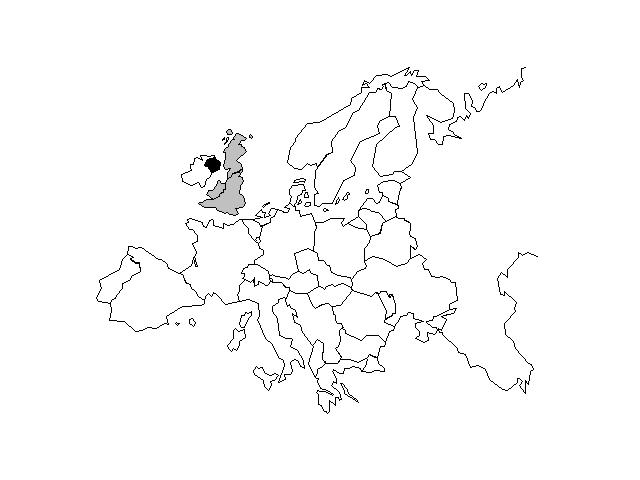|
|
|
|
|
|
|

NORTHERN IRELAND

Introduction
Northern Ireland has a population of 1.5 million (the entire population of the island of Ireland is 5 million) and is basically rural. The major industries in Belfast have been shipbuilding (the Titanic was built here) and aircraft manufacture, though like most cities today, there is a wide range of small industries. Belfast itself has a population of 250.000. The political climate in Northern Ireland never really affected University life, which has always been very attractive to students from all parts of the world. This is especially so in recent years, and Belfast has a lower crime rate than most other UK or Irish cities, andforeign students find that the people are friendly and welcoming. Most social life in Belfast is based on the many bars and pubs (with 'Guinness' the national drink) and - unlike many countries - strangers are often drawn into conversations with locals in the bars.
Queen's University of Belfast and School of Law
There are two universities in Northern Ireland, but only one Law School. The School of Law at The Queen's University of Belfast has run a taught LLM programme in Computers and Law since 1988. The numbers on this course have gradually grown and there were 12 full-time students in 1992/93. It is difficult to forecast the numbers for each year, but the numbers are growing as students see this as a course which improves job prospects. The course is taught and supervised mainly by Dr Philip Leith, but other lecturers from the School of Law teach on the course too, looking after the computer law aspects. Queen's University, is a university with a history from the 19th century. It covers all major academic areas - science, law, social sciences, medicine and has a student population of over 10.000. The Law School, like most UK law schools, is relatively small with only 400 students studying for their law degree. It is based at the centre of the university and only a few hundred metres from the city centre. The university is surrounded by Belfast's social area and night life is easily available to students.
The law degree
A law degree in the UK has a high status and there is much competition to enter a law school. Usually, only 120 or so students are taken in each year. Only a few will drop out of the course and fail to graduate. The course lasts 3 years and roughly 50% will enter the legal profession at the end of their studies. In order to do this, students must undertake a further full-time course in professional legal studies. The degree comprises 6 semesters, each semester having examinations at the end of it. A student must complete 18 modules in order to graduate.
The School of Law
The School of Law offers undergraduates a module in computers and law. It also offers a postgraduate LLM in Computers and Law. It is this later course which is available to ERASMUS students. There is a small computer lab with some ten 486 machines in the law school itself, with another six 486 machines in the law library. This will probably be expanded in the near future. Further, Queen's has a number of Open Access sites where students can use computer systems (either PC's or DEC Workstations). These are being quickly expanded and are seen as the best way to make facilities available to students in the future. Postgraduate students also have access to a large number of other systems and centres (image processing, parallel computing etc..).
Facilities
Queen's University has a sports centre, students union, a large number of societies based upon sporting activities, religion, etc.. ERASMUS students are welcome to participate in this social life while at Queen's.
Accommodation
Accommodation for ERASMUS students is usually located very close to the Law School. It can be booked for any length of time, though early booking will ensure better quality accommodation. Accommodation is usually arranged through Queen's University's International Liaison Office. The rent is about 30-40 GBP per week.
Cost of living
The major cost of living difference in Belfast to other European cities is due to socialising in bars and pubs.Students can find this a drain on their resources if they participate too frequently. Apart from that, most items cost less in Belfast than in other European cities.
Whom to contact for more information:
Basic information on the ERASMUS programme at Queen's can be got from the International Liaison Office:
Queen's University of Belfast
International Liaison Office
Belfast BT7 1NN
Northern Ireland
Phone: +44 1232 335353
Fax: +44 1232 230274
For the ERASMUS programme in Computers and Law contact Dr Philip Leith or Peter Osborne:
Queen's University of Belfast
School of Law
Belfast BT7 1NN
Northern Ireland (UK)
Phone: +44 1232 245133 (ext 3472)
Fax: +44 1232 325590
Email:
p.leith@qub.ac.uk(p.leith@qub.ac.uk)
p.osborne@qub.ac.uk(p.osborne@qub.ac.uk)